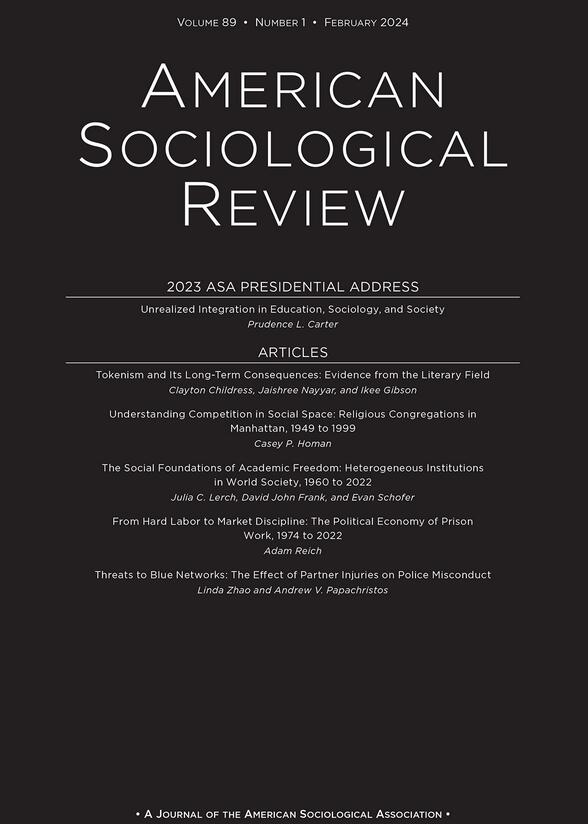另一个人的危险:花生过敏,风险感知,和负责任的社会
IF 6.2
1区 社会学
Q1 SOCIOLOGY
引用次数: 6
摘要
本文研究了当共享空间中的一些人处于高度危险之中,但任何人,包括未受影响的其他人,都可能成为风险载体时,人们对健康风险的看法。以花生过敏案例为例,并对2010年美国运输部禁止飞机上花生的提案所提交的公众意见进行定性内容分析,我们分析了减轻风险暴露责任界限的争论。我们发现风险接近的三个关键维度(物质、社会和情境)表征了支持和反对政策制定的热心主张。在与他人分享空间的行为中,这些对邻近性的关注奠定了评论者对恐惧、信任、权利、道德义务和自由的理解,同时允许他们在我们所谓的“负责任的社会”上建立立场——这是一种对邻近他人的明显同情和对社会和公共环境中公共利益的考虑的伦理。最后,我们将讨论我们的案例提供给其他几个学术领域的见解,这些领域关注“我们关心谁?”这个棘手而及时的问题。本文章由计算机程序翻译,如有差异,请以英文原文为准。
Another Person’s Peril: Peanut Allergy, Risk Perceptions, and Responsible Sociality
This article examines perceptions of health risk when some individuals within a shared space are in heightened danger but anyone, including unaffected others, can be a vector of risk. Using the case of peanut allergy and drawing on qualitative content analysis of the public comments submitted in response to an unsuccessful 2010 U.S. Department of Transportation proposal to prohibit peanuts on airplanes, we analyze contention over the boundaries of responsibility for mitigating exposure to risk. We find three key dimensions of proximity to risk (material, social, and situational) characterizing ardent claims both for and against policy enactment. These proximity concerns underlay commenters’ sensemaking about fear, trust, rights, moral obligations, and liberty in the act of sharing space with others, while allowing them to stake positions on what we call “responsible sociality”—an ethic of discernible empathy for proximate others and of consideration for public benefit in social and communal settings. We conclude by discussing the insights our case affords several other areas of scholarship attentive to the intractable yet timely question of “for whom do we care?”
求助全文
通过发布文献求助,成功后即可免费获取论文全文。
去求助
来源期刊

American Sociological Review
SOCIOLOGY-
CiteScore
13.30
自引率
3.30%
发文量
35
期刊介绍:
The American Sociological Association (ASA) is a non-profit membership association established in 1905. Its mission is to advance sociology as a scientific discipline and profession that serves the public good. ASA is comprised of approximately 12,000 members including faculty members, researchers, practitioners, and students in the field of sociology. Roughly 20% of the members work in government, business, or non-profit organizations.
One of ASA's primary endeavors is the publication and dissemination of important sociological research. To this end, they founded the American Sociological Review (ASR) in 1936. ASR is the flagship journal of the association and publishes original works that are of general interest and contribute to the advancement of sociology. The journal seeks to publish new theoretical developments, research results that enhance our understanding of fundamental social processes, and significant methodological innovations. ASR welcomes submissions from all areas of sociology, placing an emphasis on exceptional quality.
Aside from ASR, ASA also publishes 14 professional journals and magazines. Additionally, they organize an annual meeting that attracts over 6,000 participants. ASA's membership consists of scholars, professionals, and students dedicated to the study and application of sociology in various domains of society.
 求助内容:
求助内容: 应助结果提醒方式:
应助结果提醒方式:


